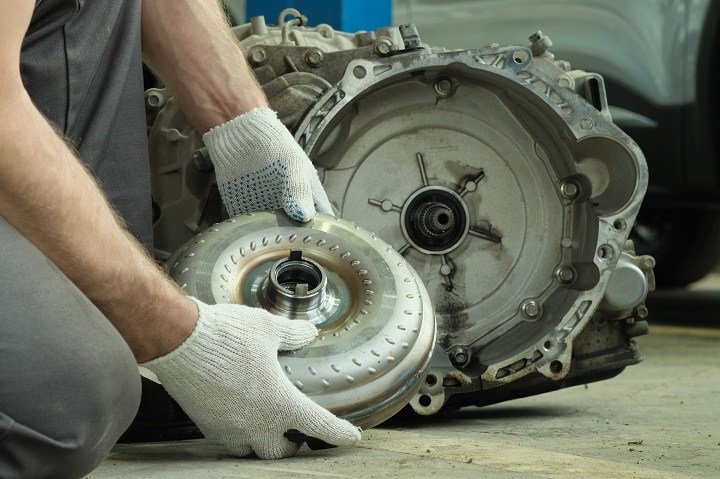
The converter plays a crucial role in the performance and efficiency of modern automatic transmissions. Unlike manual systems that rely on a clutch. The torque converter serves as the vital link between the engine and the transmission input shaft. More specifically, its primary job is to transmit power smoothly from the engine to the transmission. While simultaneously enabling torque multiplication for improved acceleration.
When the engine runs, the torque converter immediately begins using fluid coupling to transfer rotational energy from the engine’s crankshaft to the transmission input shaft. As a result, the vehicle can move forward smoothly without requiring direct mechanical engagement. At the same time, this fluid coupling allows the engine to idle freely when the vehicle stops, preventing stalling and improving drivability, especially in traffic or at stoplights.
Additionally, the torque converter doesn’t just transfer power — it enhances it. Through torque multiplication, it amplifies the engine’s torque output during initial acceleration. Consequently, drivers experience stronger low-speed performance, smoother takeoffs, and better responsiveness. Moreover, modern torque converters often include a lock-up clutch, which engages at cruising speeds to eliminate slippage. Therefore, the transmission operates more efficiently, reducing heat buildup and improving fuel economy over long drives.
Beyond performance, the torque converter also contributes significantly to smooth shifting. Because it continuously modulates the transfer of power, it minimizes harsh gear changes, reduces shock loads, and prolongs the life of internal transmission components. Furthermore, a properly functioning torque converter enhances overall vehicle comfort by ensuring consistent acceleration and deceleration.
However, when problems arise — such as shuddering, slipping, or overheating — they often signal internal issues within the torque converter. Ignoring these symptoms can lead to transmission damage, higher repair costs, and reduced vehicle lifespan. Regular maintenance, including fluid checks, timely replacements, and professional inspections, helps prevent these issues from escalating.
Contact
us today 585.663.2222
